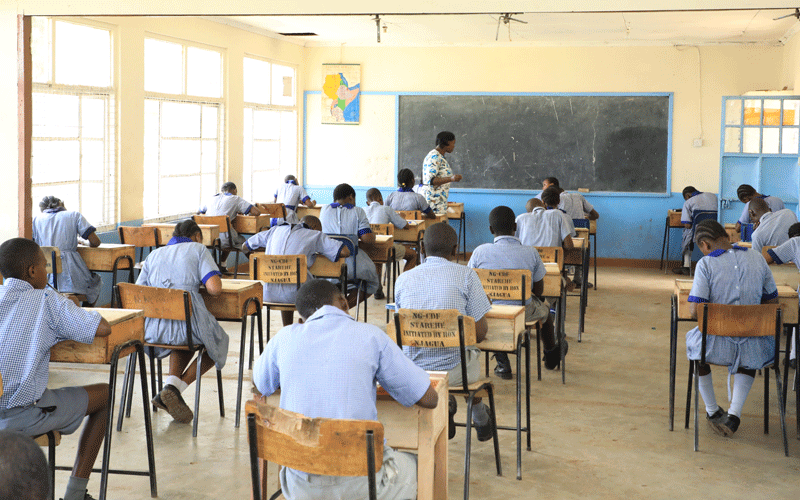Why schools should develop students’ writing skills
By Kennedy Buhere, July 29, 2021Ability to express oneself in writing is one of the skills that schools are expected to develop in learners.
Apart from creating opportunities for learners to acquire or cultivate the knowledge, abilities, attitudes and values useful for their growth and the good of the nation, composition writing skills are crucial.
It is so critical that formal institutions regard it as a primary skill employees ought to possess to the fullest possible extent, even though the other abilities are equally important.
That is the reason policy makers integrate writing in the curriculum. It is for this reason that the leadership in primary and secondary schools are indirectly responsible for the quality of writing that animates operations in government, business and in politics.
In addition to extensive writing assignments to help students to develop their innate power for creative expression, the English Curriculum or syllabus has four basic areas.
It provides for extensive reading of fictional and nonfictional works particularly in the first ten years of basic Education—Class I to Form II.
It also provides for two years of intensive reading of set books for purposes of developing critical appreciation and thinking abilities. It also provides for grammar and usage of the English language.
Indeed, it also provides for teaching of punctuation and mechanics—how to spell, how to punctuate a sentence—the building block of written discourse.
It also provides for some modest form of rhetoric— the art of effective or persuasive speaking or writing.
This enables the student to organise their material in a logical manner, to know how to build sentences and paragraphs to develop an idea, a thought, a feeling or an experience.
Under the English Curriculum, learners are exposed to English grammar very early in their school years.
The Curriculum provides for painstaking ways of teaching children how to read in the first three years of Primary Education.
Consequently, by grade four, learners have in general acquired the ability to read, to decode the written word in words, and short sentences.
Exposure to reading grade level books—in texts and pictures—all the way to secondary level, is the best education not only in reading, but writing. Writing is essentially an imitative skill.
Proficiency in English grammar without reading the best writers reduces a person to an auditor, a critic of the usage of English grammar of other people without the ability to think and create their own writing.
Reading helps one see application and usage of grammatical rules in action while at the same time, exposing a student to knowledge, experiences of better people than them.
A student also builds an extensive vocabulary through omnivorous reading. They also come to know many words whose meanings are similar, and words whose meanings are the exact opposite of each other.
And more importantly, they are exposed to rich idiomatic expressions in English. It is idiomatic expressions which animate communication.
In the course of reading, a student will be able to see the four basic forms of discourse or composition in their most beautiful dress: narrative, descriptive, expository and argumentative or persuasive writing.
All these four forms of writing are required in government, industry, the church and in politics.
Students who spent years reading good prose and poetry, who extensively read creative and informational books seamlessly transfer or apply the writing skills they acquired into any task requiring writing.
It is important that primary and secondary schools allow their students to roam the school libraries or create time for them to read extensively—books of outstanding literary merit as approved by the Ministry of Education in the orange book and those in the school libraries.
The schools have an implied contract with government, industry and the political and religious establishment to give young men and women the ability to write with ease.
That is a contract which school administrators and teachers in high school ought to discharge without breach. — The writer is the Communications Officer, Ministry of Education — kbuhere@education.go.ke
